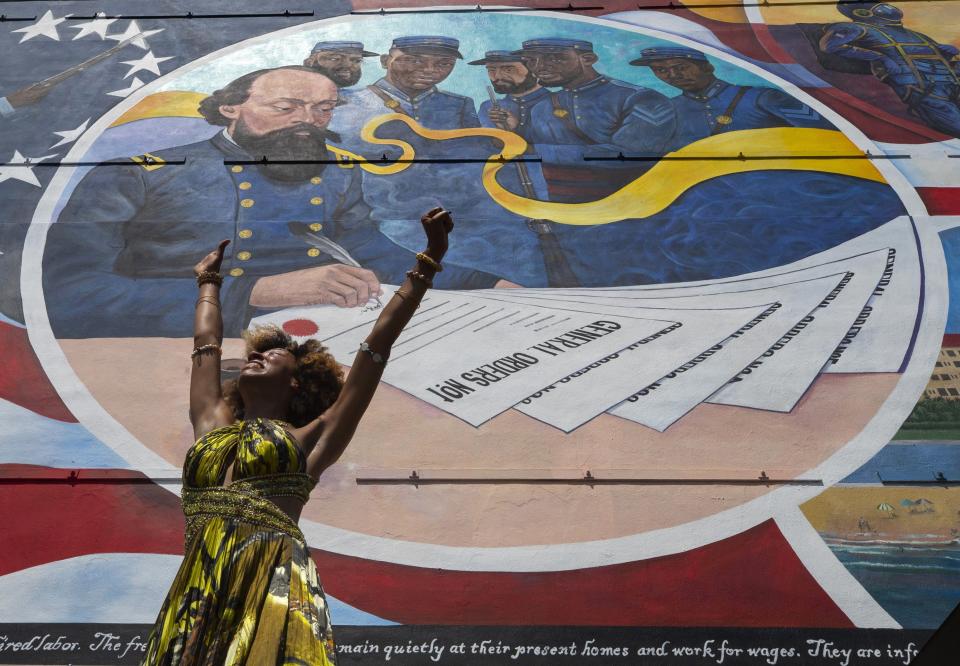Commentary: Juneteenth: An invitation to collective liberation
As we expand our celebration of Juneteenth and add it to our collective national memory bank, remember that your acknowledgment and guilt of its history is not the work of justice, and does not lead us to contemporary practices of equity and freedom. Acknowledgement can enlighten us, and guilt can motivate us, but neither is, nor does the work of repair.
As part of your commemoration and celebration, perhaps there is space for acknowledgment and lament of the past and the present, for the ways in which we have disrupted freedom, thwarted emancipation and inhibited equity. Perhaps as we join in the memory of Black emancipation of 1865, we consider what freedom means today. We consider our individual roles in the pursuit of equity and freedom for our full Austin community and our collective culpability and complicity in the continued marginalization of mélanated bodies.

Do not join us in our celebration without taking stock and responsibility for our collective story of liberation. We don’t want your short-lived performative recognition, tweets, nor your enthusiasm to join us in parade, without your sustained investment in our long-deserved, long-term, all-encompassing freedom. Sympathy is not the same as solidarity. One expires with the day’s news (the news that spurred many of you to pay attention the summer of 2020), or the expiration of June 19th in our Twitter timeline; the other is sustained. How are you helping to tell a story of freedom and equity today, Austin? How will the stories of emancipation infiltrate your daily practices, your financial investments, and your everyday considerations?
Black Austinites endured a delayed emancipation in 1865, the disruption of freedom in the 1928 city plan, the ongoing displacement of communities and institutions of the 21st century and continued practices that seek to silence and silo our stories. We’re beyond tired; we’re exhausted. And yet, we still rise, and demand our freedom in the here now. Freedom to be joyful without holding our breath. Freedom to know uninterrupted peace. Freedom to dream undeterred. Freedom to experience the full spectrum of humanity, unharmed. And freedom to continue to take up space unapologetically in the city we call home.
James Baldwin said it best when he wrote: “I love America more than any other country in this world, and, exactly for this reason, I insist on the right to criticize her perpetually.”
Perhaps he was speaking to us, Austin. A city that has not always honored the Black diasporic experience, a city that has attempted over generations to make us invisible, a city that at times would rather sell a story of progressivism and liberalism, rather than elevate the stories of truth and equity; a city whose growth, whose innovation, whose creativity offers an opportunity to support, invest in and honor the future of Black stories. So how will you support Black history, Black futures, Black stories, Black freedom beyond the convenient directive of this holiday?
To celebrate with us today is to join us in the collective work of liberation tomorrow. Our collective freedom:
Mandates acknowledging pain, trauma, and the systemic oppression of Black bodies
Requires dismantling white supremacy
Needs to be visible, not intellectual
Needs to be intentional, not performative
Should inform our private and professional decisions, not just political vote
Needs to be unapologetic, not neutral or conditional
Black freedom must start today, not tomorrow
How will you celebrate with us, Austin?
A lifelong Austinite, Cumberbatch is a racial justice educator, writer and community advocate. She is the co-founder of Rosa Rebellion.
This article originally appeared on Austin American-Statesman: Opinion: Juneteenth is more than a celebration

